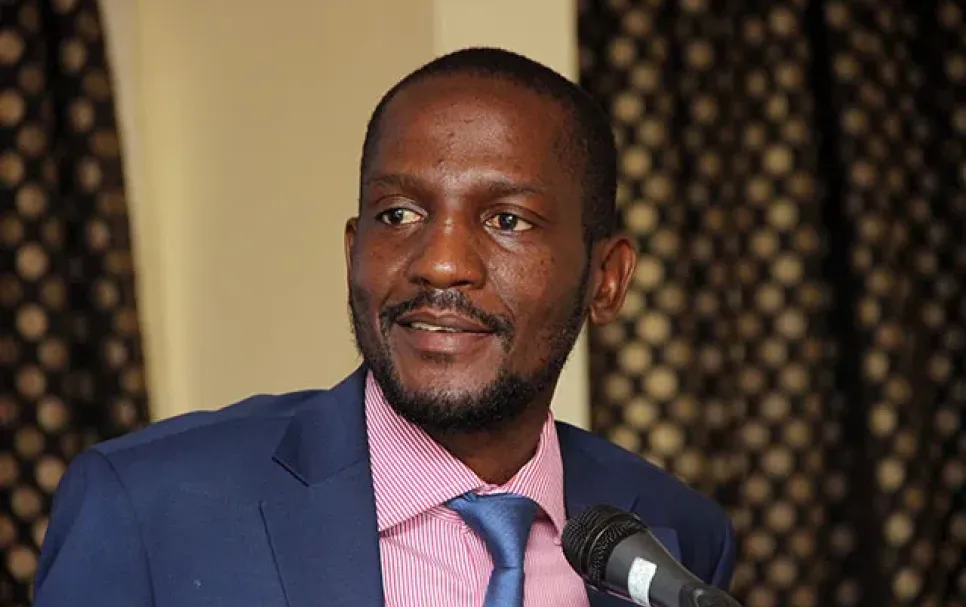Nekundi accused of abuse power

Transport and works cabinet minister, Veikko Nekundi, has been accused of abusing his executive powers to undermine road safety legislation and protect illegal public transport operators, specifically those using 7-seater vehicles.
In a letter presented to Confidente, retired Chief Inspector Ganaseb who spoke on behalf of traffic law enforcement agencies, expressed alarm at what he described as “public threats” issued by the minister against officers lawfully enforcing the Road Traffic and Transport Act (Act No. 22 of 1999).
In recent public comments which have since made head waving headlines, Nekundi warned officers to refrain from issuing what he called “hefty” fines, urging verbal warnings instead, a move Ganaseb says amounts to unlawful interference in statutory duties.
“I consider such threats to be a gross abuse of executive power, particularly when directed at officers who are simply upholding the laws as outlined in the Road Traffic and Transport Act, Act No. 22 of 1999.Officers do not operate on personal whim; the duties of traffic officers are grounded in legislation passed by Parliament,” said. Adding, “no ministerial directive can override laws passed by Parliament,” he said. “Traffic officers operate within legal mandates, not personal instruction.”
Of particular concern is the minister’s alleged endorsement of 7-seater sedan-type vehicles for long-distance public transport. According to Ganaseb, these vehicles pose significant safety and regulatory risks: they lack proper luggage compartments, have substandard seating configurations, and often fail to meet the minimum requirements for passenger roadworthiness.
He cited a troubling pattern: “These vehicles are involved in numerous severe injury and fatality cases. Ignoring their unsuitability for public transport is gambling with people’s lives.”
Ganaseb argued that by backing these operations even as they violate the Road Transportation Act (Act No. 74 of 1977) and bypass necessary permits, alleging the minister is setting a dangerous precedent. Multiple petitions and formal letters dating back as far as 2006 have urged government action against illegal transport practices, yet no significant legislative amendments have followed. Instead, officers face mounting pressure to look the other way.
“It’s painful to see law-abiding bus and minibus operators subjected to the full weight of the law while illegal operators are protected from scrutiny,” Ganaseb said.
The former inspector highlighted specific sections of the law that are being routinely flouted, including permit regulations, roadworthiness requirements, and operator control responsibilities all of which carry heavy fines or warrant criminal dockets. He emphasized that enforcement of these laws isn’t optional and is backed by both national statutes and Namibia’s commitments under the UN Decade of Action for Road Safety.
Ganaseb questioned why the Minister would ignore legal guidance from the Attorney-General’s office, which reaffirmed that 7-seaters are not authorized for use beyond municipal boundaries without proper permits. “If anything, enforcement should be intensified not sabotaged for the sake of political appeasement.”
He also challenged the Minister’s responsibility to regulate urban law enforcement boundaries and to provide lawful clarity through government notices, actions he says have been lacking.
Ganaseb ended with a call for respect for the rule of law and constructive dialogue among all stakeholders: “Public transport must serve the people safely and lawfully. It is not a personal business venture. If we begin to twist the law to suit individuals, we erode the very foundation of justice in our country.”
NEKUNDI RESPONDS
Responding to a Confidente query on the matter, this week, Nekundi maintained that measures are currently being put in place to ensure that road fatalities are minimised. The minister explained that there are frameworks underway to curb any ramifications that may arise from his ministry’s recent decisions.
“We are busy with the framework of the driving schools. We are [also] busy reviewing the law that has to do with the drivers, so that they [can] take particular training programs for them to get the [necessary] licenses,” he said.
At a recent meeting with the seven-seaters association Nekundi maintained that they play an integral role in the country as drivers contribute to the country’s economy.
The minister noted that the legal operations of the seven-seaters will now contribute to their well-being by providing for their families, and paying for other commodities in the country.
Nekundi said the limitation of the distance of a 250km radius regime that was there is a thing of the past, and is no longer going to be applicable.
- 5 views










Comments